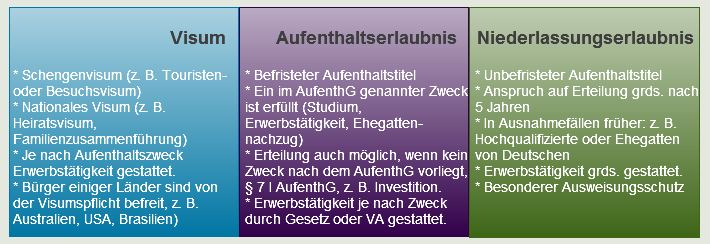Federal Administrative Court, November 16, 2010, Case No.: 1 C 17.09
BackgroundBackground: In 1985, several European countries agreed to the Schengen Agreement to gradually abolish internal border controls between the contracting parties. Following the accession of numerous other European countries, the Schengen cooperation was incorporated into the competence of the European Community in 1999.
The agreement aimed primarily at harmonizing the regulations for entry and short-term stays of foreigners within the „Schengen Area“ („Schengen Visa“). Third-country nationals who hold a Schengen visa are allowed to stay in other Schengen states within the visa’s validity and purpose and are also not subject to controls when crossing internal borders. To obtain such a visa, third-country nationals must, in addition to the visa application and passport, generally provide proof of travel health insurance for all Schengen states (with coverage of at least 30,000 euros). For business visas, additional documents such as an invitation on company letterhead and a brief description of the business relationship are required. The Federal Administrative Court in Leipzig had to decide in the case mentioned above whether a third-country national who entered with a Schengen visa for visit purposes and married a German citizen in Denmark could obtain a residence permit for spousal reunion without having first completed the necessary visa procedure from abroad.
Facts
The plaintiff from Belarus entered Germany with a Schengen visa for visiting purposes. She married a German citizen in Denmark, then returned to Germany and applied for spousal reunion. The application was rejected by the immigration authority, which also threatened deportation. The authority held that while a third-country national could apply for a residence permit in Germany under § 39 No. 3 of the Residence Ordinance if the conditions for such a permit arose after entry, the plaintiff’s marriage had been arranged before her last entry from Denmark, contrary to legal requirements. The plaintiff then sued before the Administrative Court and won. However, the Higher Administrative Court Berlin-Brandenburg confirmed the decision of the immigration authority. The plaintiff then filed an appeal with the Federal Administrative Court (BVerwG).
Judgment of the Federal Administrative Court
The BVerwG upheld the judgment of the Higher Administrative Court. The plaintiff could not apply for a residence permit for spousal reunion from within Germany based on the special regulation in the Residence Ordinance. The court ruled that she did not meet the requirements for a residence permit under § 39 No. 3 of the Residence Ordinance because she had stated upon applying for the Schengen visa that she was entering only for visit purposes, even though she intended to stay permanently in Germany from the outset. According to § 55 Abs. 2 No. 1 of the Residence Act, she had thus fulfilled a ground for expulsion.
Legal Assessment
The Federal Administrative Court clarified that an application for spousal reunion is only possible under certain conditions. One of these conditions is that the marriage must be concluded only after entry from the Schengen Area to avail of the special regulation under § 39 No. 3 of the Residence Ordinance. Since the plaintiff had already entered into a marriage before entering, she did not meet the requirements for a residence permit according to the Residence Ordinance.
Consequences
The decision of the Federal Administrative Court highlights the strict requirements for applying for spousal reunion in connection with a Schengen visa. Individuals seeking to apply for a residence permit in this situation must ensure that legal requirements are met at the time of entry to avoid deportation.
Source: Federal Administrative Court
Important Note: The content of this article has been prepared to the best of our knowledge and belief. However, due to the complexity and constant evolution of the subject matter, we must exclude liability and warranty. Important Notice: The content of this article has been created to the best of our knowledge and understanding. However, due to the complexity and constant changes in the subject matter, we must exclude any liability and warranty.
If you need legal advice, feel free to call us at 0221 – 80187670 or email us at info@mth-partner.de.


